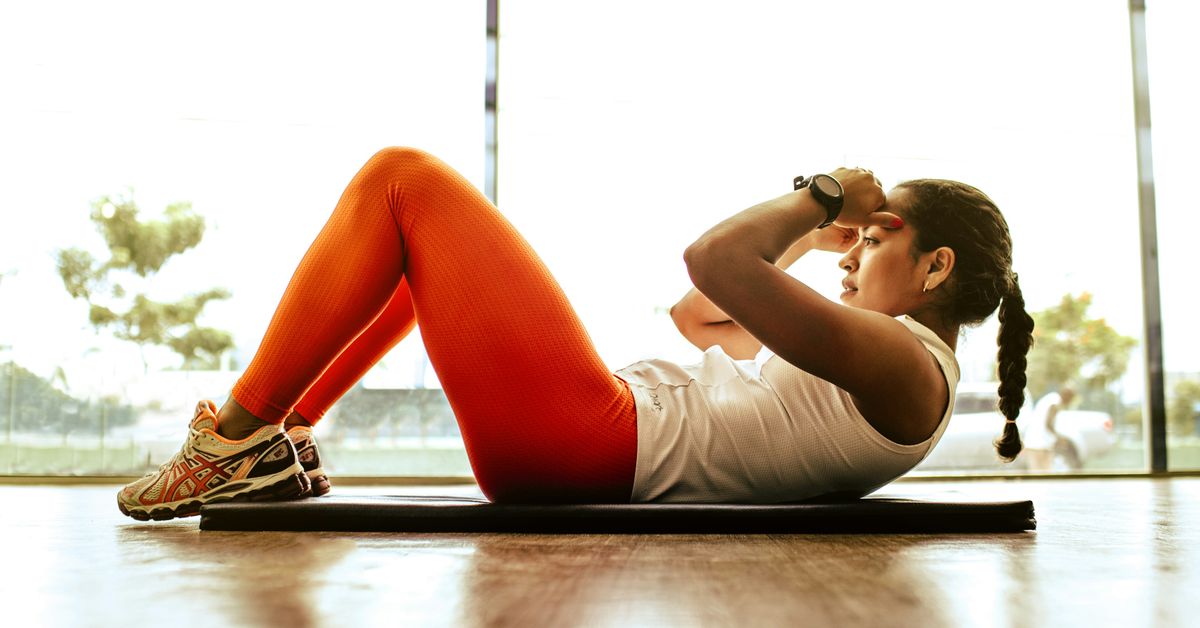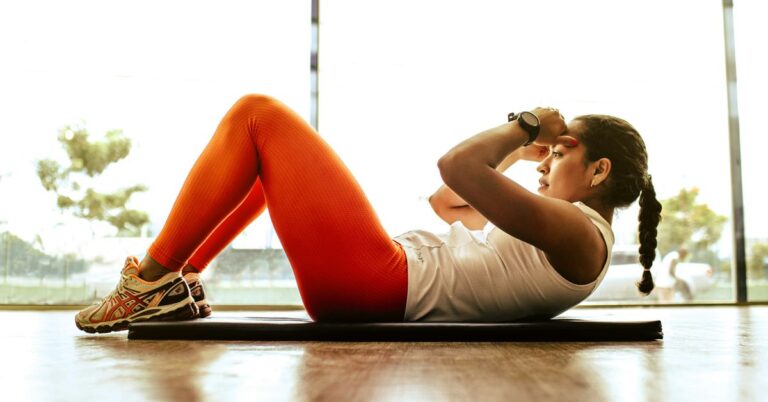Unlock the Proven Techniques to Boost Your Mental Fitness for Peak Performance
In the competitive landscape of sports, where physical prowess is often front and center, the role of mental fitness frequently flies under the radar. Yet, it can be the difference between extraordinary performance and simply going through the motions. Have you ever witnessed an athlete who, despite their physical capabilities, crumbles under pressure? It’s not a lack of ability; it’s a mental game that needs a little fine-tuning.
Understanding Mental Fitness
Mental fitness can be defined as a state of well-being characterized by the presence of positive mental states, resilience, and the capacity to handle stress and pressure effectively. It’s about more than just being positive; it encompasses a range of skills and techniques that can enhance your focus, motivation, and emotional regulation. And let’s be honest—who hasn’t had days when they felt like they were running on empty? (I know I have.)
Research suggests that a significant number of athletes who reach their peak performance do so not just because of their physical conditioning but due to their mental toughness. So, let’s dive into some proven techniques to boost your mental fitness for peak performance, shall we?
Visualize Success
Visualization is not just a buzzword thrown around in motivational speeches; it’s a powerful technique that can impact your performance. The brain doesn’t differentiate between real and imagined experiences. When you visualize a successful performance, you actually stimulate the same brain regions that are active when you execute the action in reality. It’s like a dress rehearsal for your mind.
Consider this: Olympic athletes often spend countless hours visualizing their routines. Michael Phelps, for example, was known for vividly picturing every detail of his races before diving in. (I once tried it before a big presentation, and while I didn’t win a gold medal, I did manage to avoid tripping over my words!)
How to Practice Visualization
Here are some steps to get started with visualization:
- Find a quiet space where you can relax and focus.
- Close your eyes and take a few deep breaths.
- Picture yourself performing at your peak—feel the emotions, see the surroundings, hear the crowd.
- Repeat this practice regularly, ideally leading up to competitions or events.
Mindfulness and Meditation
Mindfulness has taken the world by storm, and it’s no surprise why. It’s all about being present and fully engaged in the moment, which can significantly reduce anxiety and improve focus. In the chaotic world of sports, where distractions abound, mindfulness can provide the clarity athletes need to maintain peak performance.
Studies have shown that athletes who engage in mindfulness practices often experience enhanced concentration, reduced stress levels, and improved performance outcomes. It’s like having a mental reset button that you can tap into whenever life gets a bit too frantic.
Getting Started with Mindfulness
If you’re new to mindfulness, here’s a straightforward approach:
- Begin with short sessions—just a few minutes each day.
- Focus on your breath. Inhale deeply, hold it for a moment, then exhale slowly.
- When your mind wanders (and it will), gently bring your focus back to your breathing.
As you become more comfortable, you can gradually extend the duration of your practice. I remember when I first tried mindfulness; I struggled to sit still for five minutes! But persistence pays off, and soon I was able to embrace those quiet moments with ease.
Goal Setting: The SMART Way
Setting goals might seem like a no-brainer, yet many athletes fail to do it effectively. The SMART criteria—Specific, Measurable, Achievable, Relevant, and Time-bound—provides a robust framework for establishing goals that drive peak performance.
Instead of vague aspirations like “I want to get better at my game,” a SMART goal would be “I will improve my free throw percentage by 10% in the next three months by practicing 30 minutes each day.” See the difference? It’s like trading a vague map for a GPS with turn-by-turn directions.
Steps to Create SMART Goals
Here’s how to create your own SMART goals:
- Specific: Clearly define what you want to achieve.
- Measurable: Establish criteria for measuring progress.
- Achievable: Ensure your goal is realistic given your resources.
- Relevant: Align your goal with broader objectives.
- Time-bound: Set a deadline to create urgency.
One coach I spoke with mentioned how he helps athletes set SMART goals to keep them focused. “It’s all about turning dreams into actionable steps,” he said, and I couldn’t agree more. (After all, who wouldn’t want to be a dreamer with a plan?)
Developing Resilience
Resilience is the ability to bounce back from setbacks and challenges, and in sports, it’s crucial. It’s not just about enduring difficulties; it’s about learning from them and using those experiences to fuel future performance. Think of it as the mental equivalent of weightlifting—each challenge you face builds your mental muscles.
Building Resilience
Here are some strategies to enhance your resilience:
- Embrace Challenges: Instead of avoiding difficult situations, lean into them. Each obstacle is an opportunity for growth.
- Maintain a Positive Outlook: Focus on what you can control and keep a hopeful perspective, even in tough times.
- Build a Support Network: Surround yourself with supportive people who uplift and encourage you.
- Practice Self-Compassion: Be kind to yourself during setbacks—everyone stumbles from time to time.
One memorable lesson I learned came from a seasoned marathon runner who spoke about his early races. “I fell flat on my face during my first big run,” he recalled with a chuckle. “But instead of giving up, I used that moment to fuel my determination. Now, I look back and see it as a stepping stone.”
Stay Physically Active
While this article focuses primarily on mental techniques, let’s not forget the impact of physical health on mental fitness. Regular exercise boosts mood, reduces anxiety, and enhances cognitive function. It’s like a two-for-one deal: as you strengthen your body, you simultaneously fortify your mind.
Finding Your Physical Groove
Engaging in activities you enjoy is key to maintaining a consistent routine. Whether it’s running, swimming, dancing, or even a brisk walk in the park, find what makes you feel alive. (For me, it’s a good old-fashioned kickboxing class—there’s something cathartic about punching the air!)
Studies have shown that exercise releases endorphins, the body’s natural mood lifters. So, if you’re ever in a funk, a quick workout might just do the trick. It’s the ultimate way to break the cycle of negativity.
Emotional Regulation Techniques
Emotional regulation is a significant component of mental fitness. Being able to manage your emotions—especially under pressure—can dictate your performance. Ever notice how some athletes seem to thrive in high-stress situations while others falter? It often comes down to how well they can regulate their emotions.
Techniques for Emotional Regulation
Here are some effective strategies:
- Deep Breathing: Simple yet effective, deep breathing helps calm the nervous system.
- Self-Talk: Positive self-talk can counteract negative thoughts—think of it as your personal cheerleader.
- Journaling: Writing down your thoughts and feelings can provide clarity and help you process emotions.
One athlete I interviewed shared how self-talk transformed her performance. “Before competitions, I’d repeat affirmations like ‘I am strong and capable,’ and it made all the difference,” she explained. It’s amazing what a little pep talk can do, right?
Seek Professional Guidance
Don’t shy away from seeking help from professionals. Sports psychologists, coaches, and mentors can offer invaluable insights and techniques tailored to your specific needs. They can provide a fresh perspective and help you navigate mental hurdles with strategies that are tried and true.
I once spoke with a sports psychologist who emphasized the importance of mental training. “Just as athletes practice their skills, they should also practice their minds,” she said. It’s a crucial aspect that shouldn’t be overlooked.
When to Seek Help
Here are some signs that it might be time to seek professional guidance:
- Persistent anxiety or stress impacting performance.
- Difficulty focusing during competitions or training.
- Feeling overwhelmed by expectations.
- Consistently negative thoughts that affect morale.
Building a Routine for Mental Fitness
Creating a routine that incorporates these techniques can significantly enhance your mental fitness. Consistency is key; just as you wouldn’t expect to build muscle overnight, mental fitness takes time and dedication.
Sample Routine
Here’s an example of how you might structure a daily mental fitness routine:
- Morning: 5-10 minutes of mindfulness meditation.
- Midday: Visualization practice for upcoming challenges.
- Afternoon: Set a SMART goal for the week.
- Evening: Reflect on the day in a journal, noting successes and areas for improvement.
When I first started this routine, I struggled to find the time. But over the weeks, it became second nature—like brushing my teeth but with way more mental benefits!
The Power of Community
Lastly, don’t underestimate the power of community. Surrounding yourself with like-minded individuals can provide support, motivation, and accountability. Whether it’s training partners, coaches, or even online groups, having a support network can bolster your mental fitness.
I recall my days in a local running club, where camaraderie turned grueling training sessions into enjoyable experiences. We pushed each other, celebrated victories together, and, most importantly, created an environment where mental fitness thrived.
Final Thoughts
Boosting your mental fitness is a multifaceted journey, not a one-size-fits-all solution. By incorporating techniques like visualization, mindfulness, goal setting, and emotional regulation, you can unlock your full potential. Remember, it’s not just about the physical aspect of sports—it’s about cultivating a resilient and agile mind that can carry you through challenges.
So, the next time you lace up your shoes or step into the arena, remember that your mind is your greatest ally. Treat it well, and it will reward you with peak performance. And who knows? You just might find yourself standing on that podium, reflecting on a journey that was as much about mental fitness as it was about physical strength.
Now, go forth and conquer—your mental fitness awaits!









